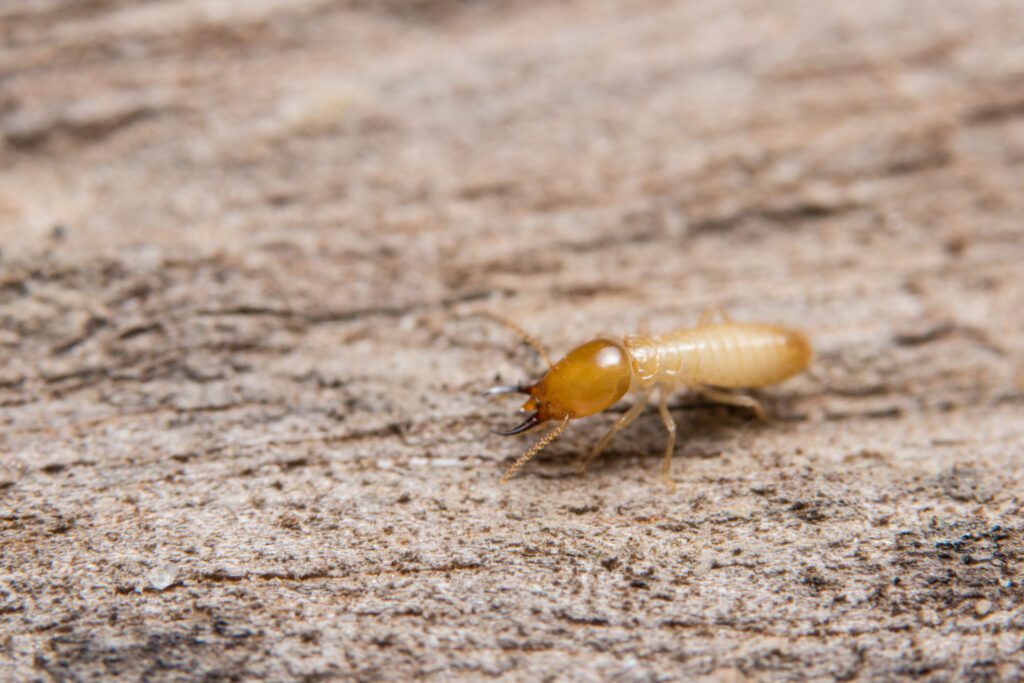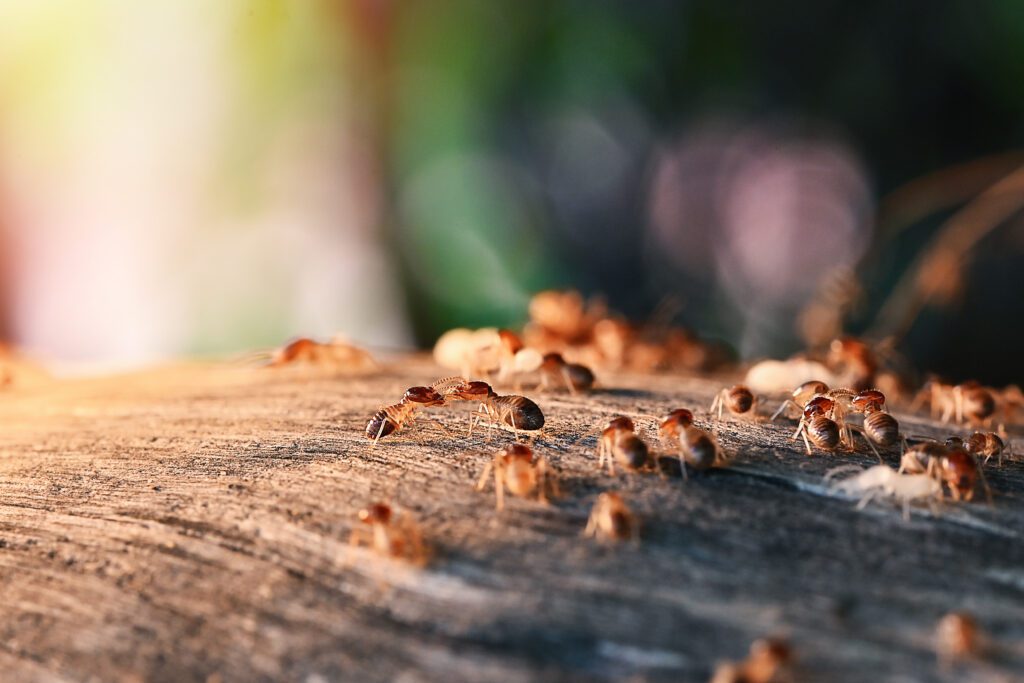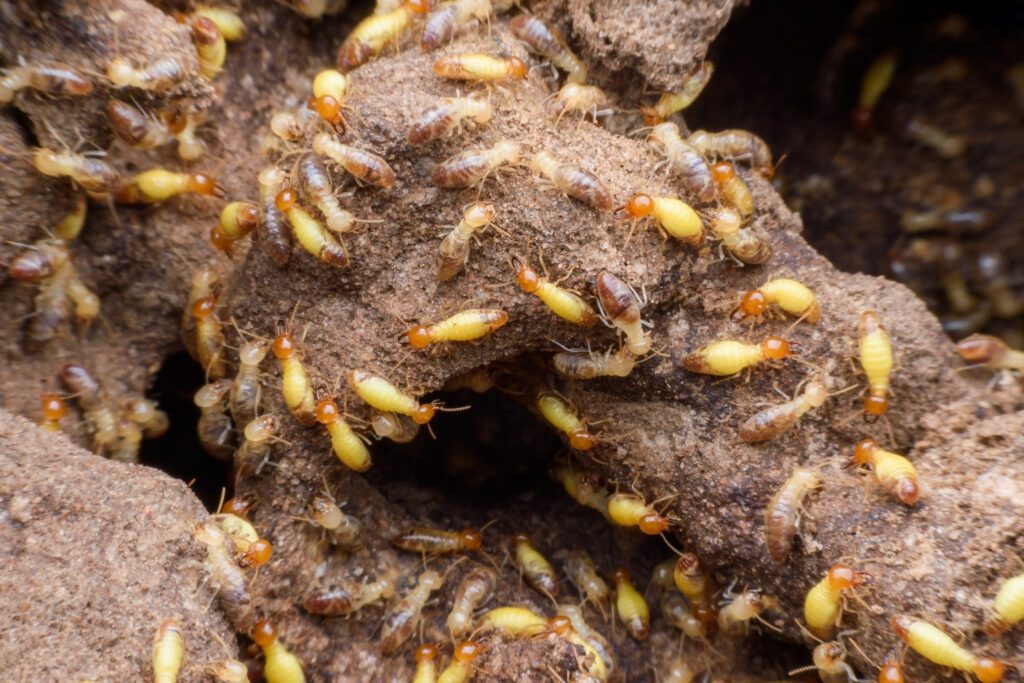Miami’s tropical paradise comes with a hidden cost: an army of wood-eating termites that never take a day off. Our city’s warm, humid climate isn’t just a draw for sun-seekers—it’s a five-star resort for termites. Miami consistently ranks as America’s most termite-infested city, and homeowners are locked in a year-round battle against these silent destroyers. At IPest Control Inc., we’re here to help you fight back with expert knowledge and cutting-edge solutions tailored to tackle termites in Miami.
Why Termites Thrive in Miami’s Climate

Miami’s endless summers, mild winters, and 90% average humidity create a termite utopia. While colder climates slow these pests down, termites in Miami feast and multiply without a break. The city’s frequent tropical storms, lush vegetation, and abundance of wooden homes turn it into an all-you-can-eat buffet for subterranean and drywood termites alike. From tunneling through soggy soil to nesting in your attic, termites in Miami have every advantage.
The Staggering Cost of Termite Damage in Miami
Termites don’t just nibble—they demolish, often leaving homeowners clueless until the damage is done. In Miami, where termites in Miami operate 24/7, the financial hit is brutal. Nationwide, termites rack up $5 billion in damages annually, but Miami takes an outsized share of the pain. Repair costs here can soar into the tens of thousands, especially when structural beams or foundations are compromised.
Miami’s Termite Toll: By the Numbers
- Florida’s Price Tag: Termites cost state homeowners over $500 million yearly.
- Miami’s Burden: As Florida’s termite hotspot, our city shoulders a hefty chunk of that bill.
- Your Wallet: Individual repairs can range from $3,000 to $20,000+ based on infestation severity.

Your Homeowner’s Guide to Stopping Termites in Miami
Prevention isn’t just smart—it’s your only shot at keeping termites in Miami from turning your home into their personal playground. Miami’s steamy climate and wooden architecture make it a magnet for these pests, but with the right moves, you can fortify your property into a termite-free fortress. Here’s a battle-tested playbook to stop termites in Miami before they start:
Dry Out Their Dreams
Termites in Miami thrive on moisture, and our city’s 90% average humidity gives them plenty to work with. Ventilate crawl spaces, attics, and basements with exhaust fans or dehumidifiers to keep dampness in check. Fix leaky pipes, clear clogged gutters, and slope soil away from your foundation to prevent pooling after Miami’s frequent downpours. A dry home is a termite’s worst enemy.
Seal Every Crack
Termites in Miami can slip through gaps as small as 1/32 of an inch. Inspect foundations, windows, doors, and utility entry points, sealing them with silicone caulk or stainless steel mesh. For subterranean termites, consider installing physical barriers like termite-resistant sheeting during renovations. Blocking these entry points cuts off their sneak attacks.
Landscape Like a Pro
Your yard can either roll out the red carpet for termites in Miami or shut them down. Keep mulch, firewood, and plants at least 12 inches from your home’s exterior—termites love using these as bridges. Opt for non-cellulose mulch like rubber or gravel, which termites can’t chew. Trim trees and shrubs away from walls to reduce shade and moisture, and remove storm debris promptly after Miami’s hurricanes to avoid attracting pests.
Stay on Guard
Annual inspections are non-negotiable in a city where termites in Miami never sleep. Look for mud tubes snaking up walls, discarded wings near windows, or wood that sounds hollow when tapped. Use a screwdriver to probe exposed wood—if it crumbles, you’ve got trouble. For peace of mind, schedule professional checks with IPest Control Inc. to catch early infestations before they spiral.
Upgrade Your Defenses
Go beyond basics with pre-construction treatments if you’re building or renovating. Applying liquid termiticides to soil before pouring a slab can protect new homes for up to 7 years. For existing homes, install bait stations around your property to monitor and intercept termite activity. These proactive steps are especially critical in Miami, where 6 invasive termite species lurk.
Know Your Wood
Termites in Miami target untreated wood, but you can fight back with smarter choices. Use pressure-treated lumber for decks, fences, or outdoor structures, which resists termite damage. For interior renovations, consider borate-treated wood, a non-toxic option that repels pests. Avoid storing cardboard or paper near your home’s foundation—termites see them as bonus snacks.
IPest Control Inc.: Miami’s Termite Terminators
When termites in Miami strike, IPest Control Inc. is your first call. We don’t just treat infestations—we outsmart them with state-of-the-art technology and eco-friendly solutions. Our team knows the local termite playbook inside out, delivering customized treatments that stop these pests in their tracks. Call us now to exterminate those termites.

Why Trust IPest Control Inc.?
Lasting Defense: We offer ongoing monitoring, WDO Inspections and professional termite control to ensure termites never come back.
Miami Mastery: We understand the 20 termite species active in Florida, including Miami’s worst offenders.
Green Tactics: Our baiting systems and liquid termiticides hit termites hard while keeping your home safe.
IPest Control Inc. brings to the table treatments like baiting systems and liquid termiticides that are tough on termites but gentle on the environment. These solutions are aimed at wiping out current colonies and stopping new ones from forming, offering lasting protection for your property!
Take Control of Termites in Miami Today
Miami’s sun, sea, and termites in Miami are part of the package—but you can keep the pests out of any space; with smart prevention and IPest Control Inc.’s expertise, your home can stand strong against termite chaos. Don’t wait for damage to strike—call IPest Control Inc. for a commercial free inspection and send termites in Miami packing.
FAQ: Your Termite Questions Answered
Are Termites Common in Miami?
Yes, termites in Miami are a fact of life. Miami’s tropical climate and wooden homes make it America’s top termite city, with constant activity from subterranean, drywood, and Conehead species.
Can You Sell a House with Termites in Florida?
You can, but it’s tough. Florida requires disclosing termite issues, and untreated infestations can lower your home’s value by 10–20%. Pre-construction treatments are essential to prevent termites and boost salability.
Do Miami’s Hurricanes Make Termite Problems Worse?
Hurricanes like Irma and Ian leave behind flooded homes, fallen trees, and soggy wood—prime real estate for subterranean termites. Searches spike for “termites after hurricanes” in Florida, and Miami’s storm-prone location amplifies the risk. Post-storm cleanup often overlooks termite colonies thriving in the chaos.
Can Termites Eat Through Concrete?
No, termites cannot eat through solid concrete. They feed on cellulose-based materials like wood, not the cement, sand, and gravel in concrete. Termites lack the enzymes and jaw strength to digest or chew it. However, they can sneak into homes through tiny cracks or gaps in concrete foundations—sometimes as small as 1/32 of an inch—allowing them to reach and damage wood inside.
How do termites find cracks in concrete?
Termites use their antennae to detect moisture and air currents, guiding them to small openings. This lets them slip through unnoticed until damage shows up.
Does concrete stop termites long-term?
Concrete blocks termites from chewing through, but it’s not perfect. Cracks from settling or weather can form over time, creating entry points. Regular checks and sealing are key to keeping them out.